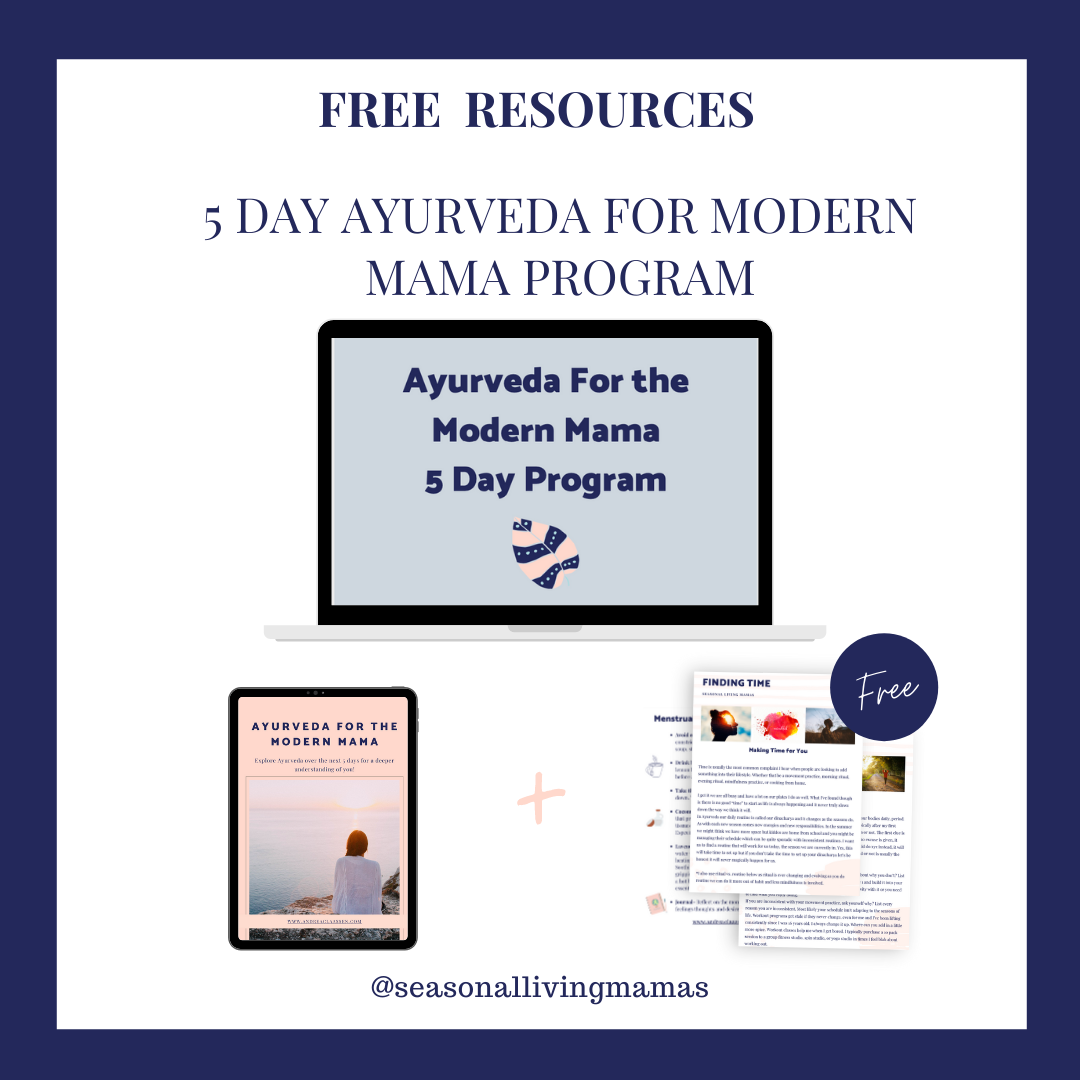What is Ayurveda?
Ayurveda literally translates to wisdom or science of life. Ayurveda is derived from the Sanskrit words ayur (life) and veda (science or wisdom.) It originated in India over 5000 years ago making it one of the oldest wellness systems in the world. Ayurveda is not a religion (or cult) and is often referred to as the sister science of yoga. You really can’t have Yoga without Ayurveda, they go hand in hand with each other as you will see in this next section.
Ayurveda will help you align to a deeper side of yourself and find your true nature. Many current wellness trends actually originated in Ayurveda, such as oil pulling (though Ayurveda uses sesame oil and it’s only done for five minutes), neti pot, intermittent fasting, seasonal wisdom, and tongue scrapping.
In Ayurveda the goal is to get to the root cause of all wellness issues. It is said what is occurring outside is also occurring within. If the season outside is cold and dry we need to watch our own bodies to make sure they do not get to cold and dry. One of the key elements in Ayurveda is like increases like, and opposites heal. That is why seasonal practices are so key in Ayurveda.
A Brief history on Ayurveda
Ayurveda is believed to have been based upon the knowledge gained from the Vedas, which were spiritual texts from ancient India.
There are three major texts recognized by Ayurveda. Charak Samhita, this text highlights the doshas origins with an emphasis on the vata dosha, as well as becoming self aware on your life’s path. The Sushruta Samhita texts discusses Ayurvedic surgery (shalya) and has an emphasis on the pitta dosha and marma points in the body. Finally the Ashtanga Sangraha and Ashtanga Hridaya by Vagbhata has an emphasis on the kapha dosha and completes the picture on the modern day doshas and their 5 sub-types. Theses three books have since been translated and updated which is where the modern Ayurveda has evolved from today.
Many of the modern texts have been kept alive by practitioners who are passionate about keeping Ayurveda’s roots. Dr. Vasant Lad is a pioneer in the west and founder of the Ayurvedic Institute in Santa Fe, New Mexico. He has written several books, and runs multiple programs in the Ayurprana lineage. The feminine form of Ayurveda is another newer field in Ayurveda that brings the structures of Ayurveda into a more feminine lens.
There are so many modern teachers that are helping keep the Ayurvedic roots alive while still making it practical and digestible in the modern world. Flexibility is key, one person’s medicine is another’s poison. With any area of Ayurveda you try it on and see what works best for you, knowing it might work great in your 30’s but something you need to let go of in your 60’s.

Practices in the text that are common today
- Oil pulling- sesame vs coconut oil is used in Ayurveda. Sesame is tridoshic coconut oil is not great for vata or kapha constitutions.
- Intermittent fasting- Ayurveda recommends 12-16 hour fast daily.
- Minimal snacking to aid in better digestion.
- Starting your day with movement- this is the kapha time of day so best to get up and get moving.
- Digestion begins with the eyes. If you eat in a chaotic environment your body is less likely to digest what you're attempting to eat.
- Breathwork is good for you- Ayurveda and yoga have been practicing various pranayama practices for centuries to calm the nervous system. The popular breathwork right now of the quick quick inhale through the nose exhale out the nose might not be great for vata dosha. Ayurveda addresses the needs for all constitutions and doesn't assume one practice is great for all people at all times.
- Abhyanga and moving the lymph system. Massage and making sure the body doesn't get stuck and stagnant have long been practices Ayurveda has recommended to help reduce kapha build up in the body. Breast massage is also recommend to keep the tissue from building up.
- The five senses play a vital role in keeping the body calm, cool and collected. If our body is overwhelmed through our five senses we are more likely to experience burnout, overwhelm and disease in the body according to Ayurveda.
Those are just a few of the practices Ayurveda addresses in the ancient texts that are now more common knowledge in today's world.
How does this work when our world is faster paced today?
Needless to say 5000 years ago the world was a lot different. We didn't have modern refrigeration to store food, we didn't have electricity, indoor plumbing, and didn't know horrible events happening in the world every five minutes. Now our phones are always with us, we get alerts about everything, we might be on social media scrolling just for fun and learn of a celebrity death or horrific event that now sends us into a spiral.
If you're a householder taking care of your family and all of the text recommendations seem overwhelming I'm here to say there is a middle ground. I personally believe you don't have to practice everything religiously as written. I think there is wiggle room to adapt and take what works and leave the rest. I keep the big rocks of Ayurveda in my life. Living seasonally for me is one of the biggest. Paying attention to postpartum protocols has also been huge for me. If I want to get to the root cause of menstrual cycle issues Ayurveda has helped the most.
I think the fun and playfulness of Ayurveda is when you start to become intuitive with what you need vs dogmatic in your approach. If I want a second cup of coffee it will bring more heat in the body and increase my vata or pitta dosha. I might want a more grounding breakfast that doesn't include tomatoes or mushrooms which both increase pitta. There are ways to look at life without saying this is the only way.
It's not realistic, it's not fun and most people will fail at it. You have to be able to know why you're doing something and make those adjustments. Like the cup of coffee example. If you constantly deprive yourself you're not going to live a very fun life and will start getting resentful of what you're doing.
That is why living seasonally is a good time to pause and ask yourself, is this still working for me?
I think there is major benefits to keeping the old but making sure you make it practical in your life today. I have found great benefit personally from following Ayurveda and I don't do it perfectly. I like to bring in more feminine flow as I was taught in my school with Katie Silcox in Shakti School.
In the end Ayurveda is all about getting to know yourself on a deeper level so life does become more intuitive and flows with purpose vs checking off the latest biohacking box because everyone else is doing it.
Are you a Mama craving Ayurveda in your life in a practical way?

Download your free five day for modern mama program to learn how to slow down, tune in and implement ancient practices into your modern lifestyle!
